HRNS Uganda partners with Impact Atlas to pioneer real-time tracking of farmer training
In Uganda, it’s estimated that over 10 million people depend on coffee for their livelihood, but here, productivity and coffee yields are among the lowest in the world.
For 12 years, Hanns R. Neumann Stiftung (HRNS) has implemented projects that train smallholder coffee farmers in numerous coffee-producing countries, with the goal of boosting yields and developing modern farmer organizations. To date, HRNS Uganda has reached more than 50,000 households.
Last year, HRNS set out to strengthen its data collection in order to enhance its operational decision-making using real-time, efficient and reliable data. Partnering with Impact Atlas, HRNS Uganda is now tracking monthly training and agronomy adoption visits to 1,097 farmer groups for 21,985 households in real-time. As a leader in this space, HRNS believes this transformation has increased transparency and learning at every level of their organization, from field staff to funder.
As a funder, the transparency enabled by Impact Atlas helps us better understand the specific use and impact of our investment, ensuring that our support is tied to effective interventions and the highest quality programming
— Dr. Steven Shaw, CEO Benckiser Foundation.
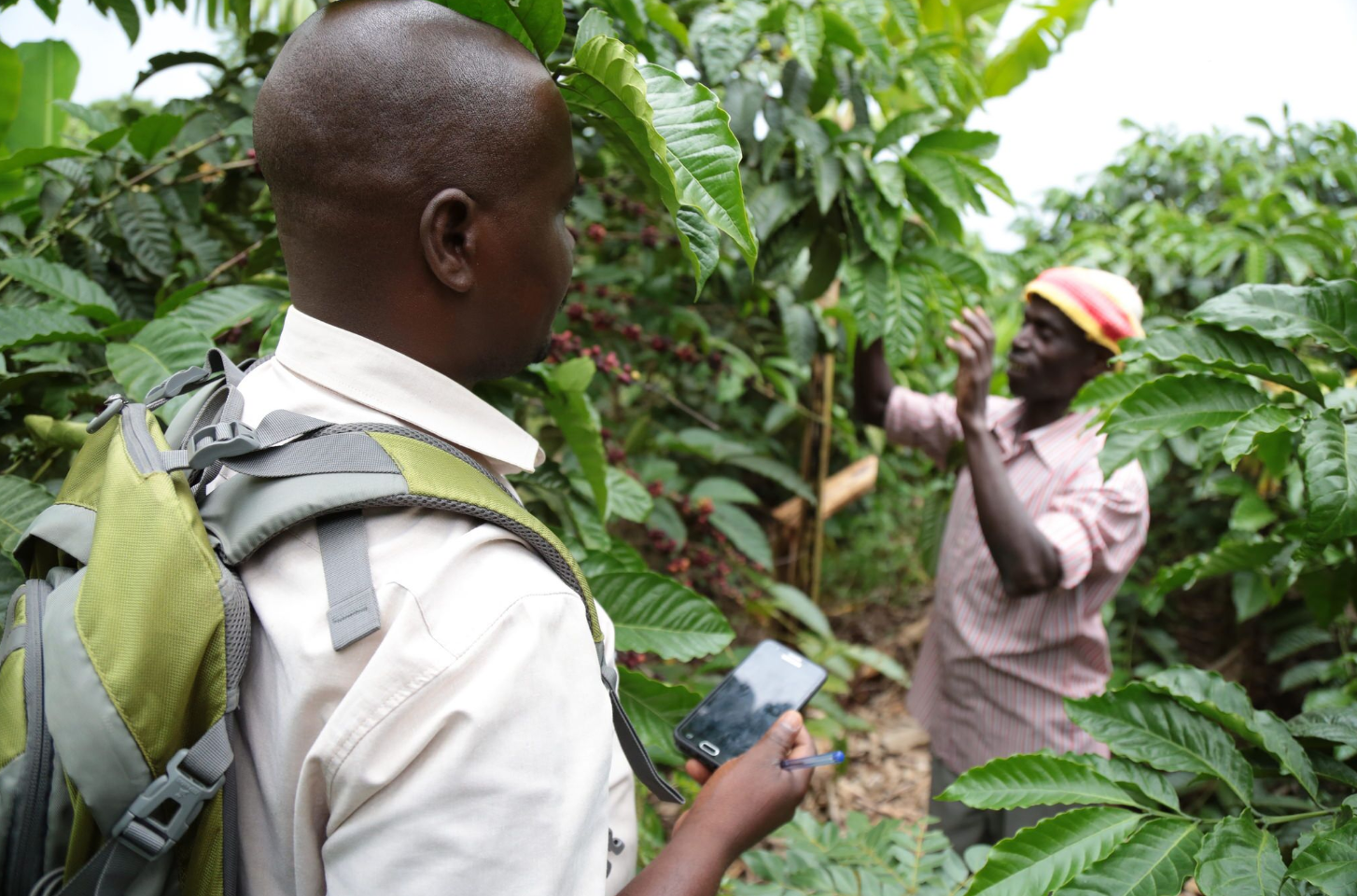
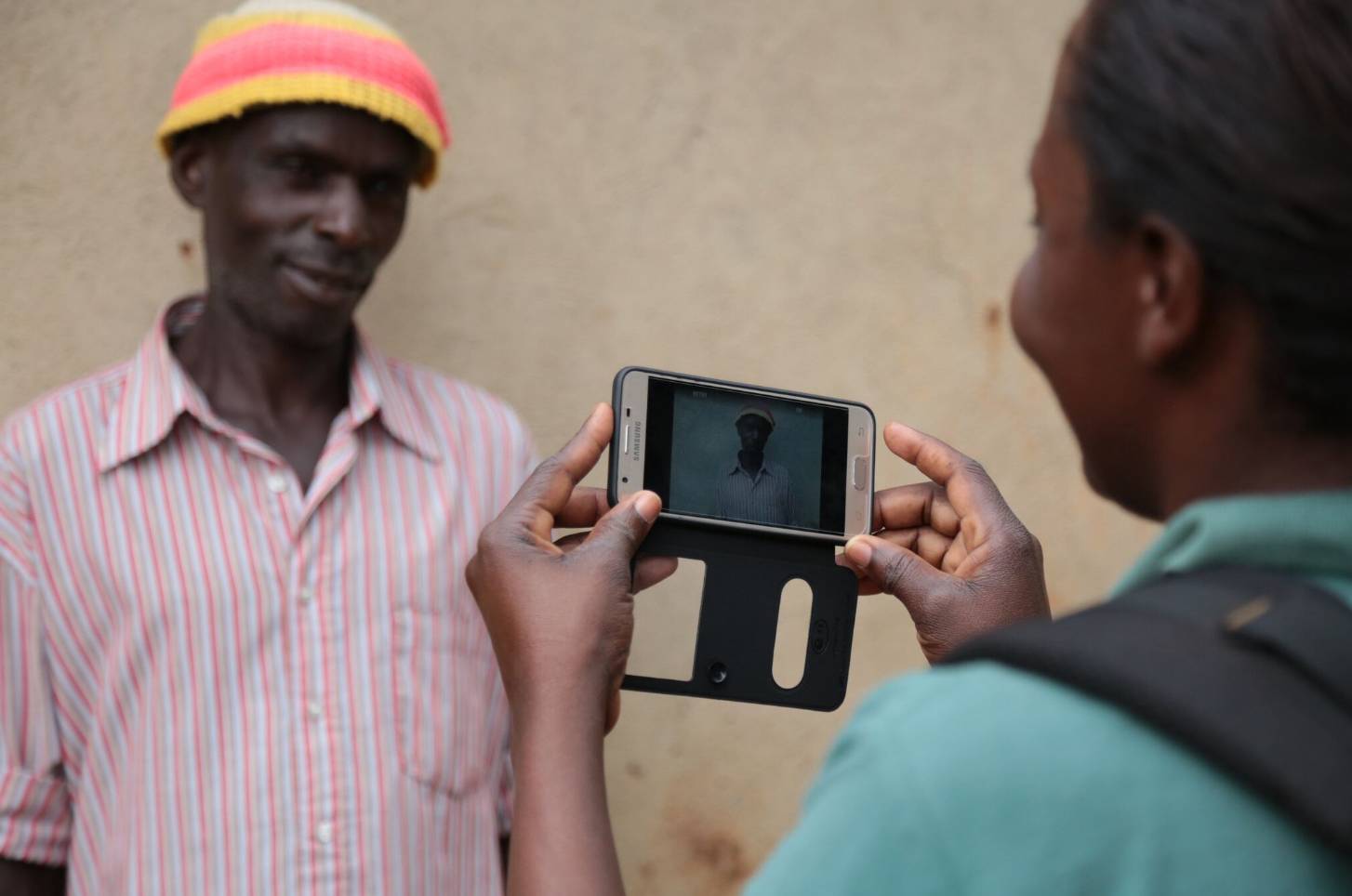
The HRNS coffee training program
HRNS’s projects create an environment that empowers farmers. Hands-on training and tools provide the resources coffee farmers need to achieve significantly higher returns on their coffee production. HRNS’s first step familiarizes the farmers with the best agricultural practices through farmer field schools and demo plots of land. Once this foundation is laid, HRNS works to develop professional farmer organizations that offer additional services, strengthening the farmers’ technical and commercial capabilities.
Each Farmer Field School, which includes roughly 20 farmers, receives about one training per month. These schools are spread across multiple districts of Uganda, in areas with low connectivity. With such widespread and multidimensional programming, it can be difficult to track attendance, completion of trainings, and then follow through to track the adoption of the methods being taught. We partnered with Impact Atlas to get a holistic view of our project and impact
— Tobias Voigt, Global Monitoring & Evaluation manager HRNS
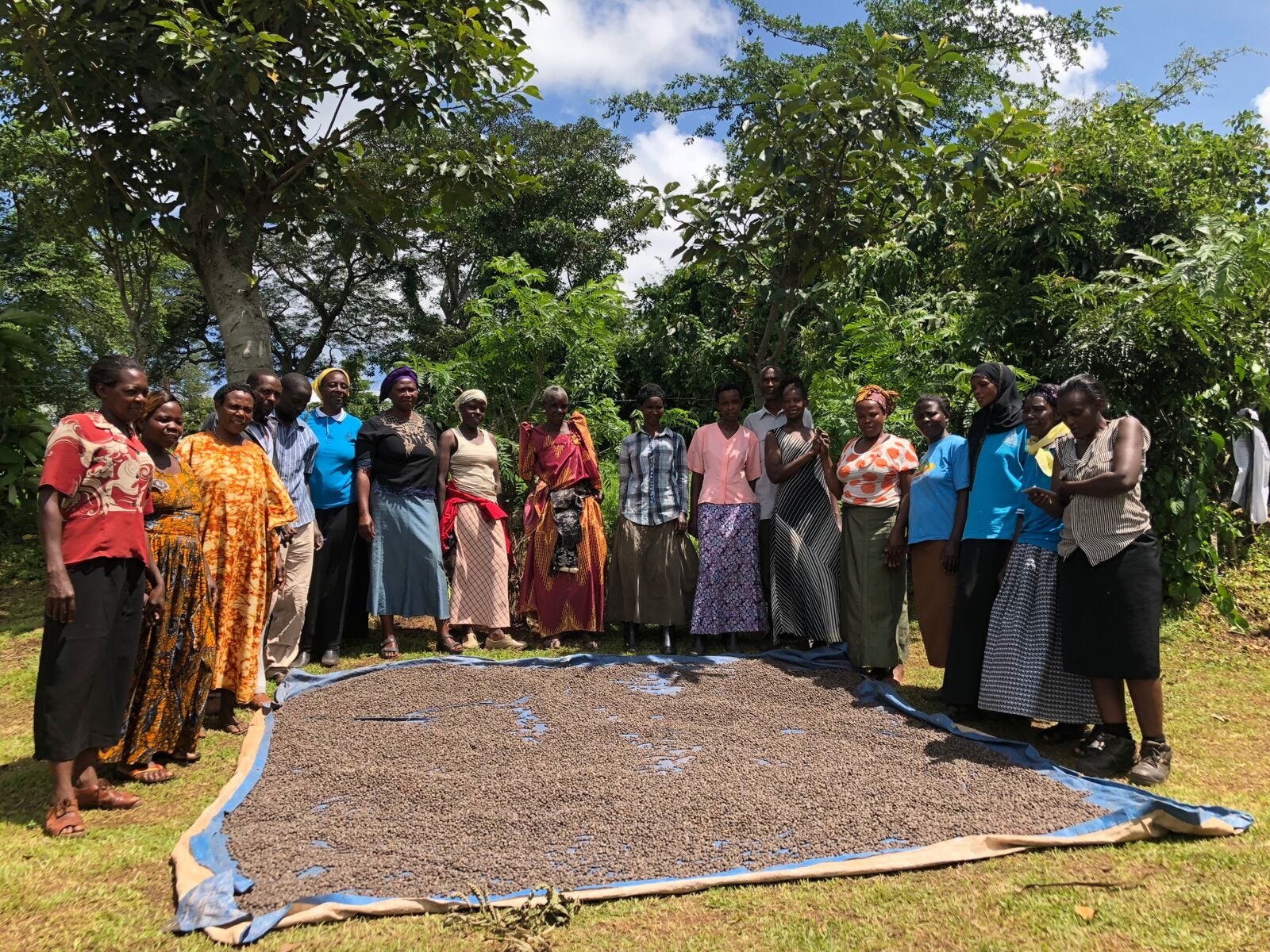
Farmer training tracking with Impact Atlas
HRNS has supplied each of their Field Extensionists with a smartphone, loaded with the Impact Atlas app. With it, the Field Extensionists can report the completion of trainings, the attendance of farmers in each village, and the GPS location of the training site. Every farmer has a profile that is accessible on both the web and in the app, allowing Field Extensionists to track their individual progress.
From initial program design to final reporting, we are excited about the real-time visibility that Impact Atlas gives us into our farmer training programs and participant outcomes. This insight ensures we can adapt and deliver the best possible impact with the available resources
— Tobias Voigt, Global Monitoring & Evaluation manager HRNS
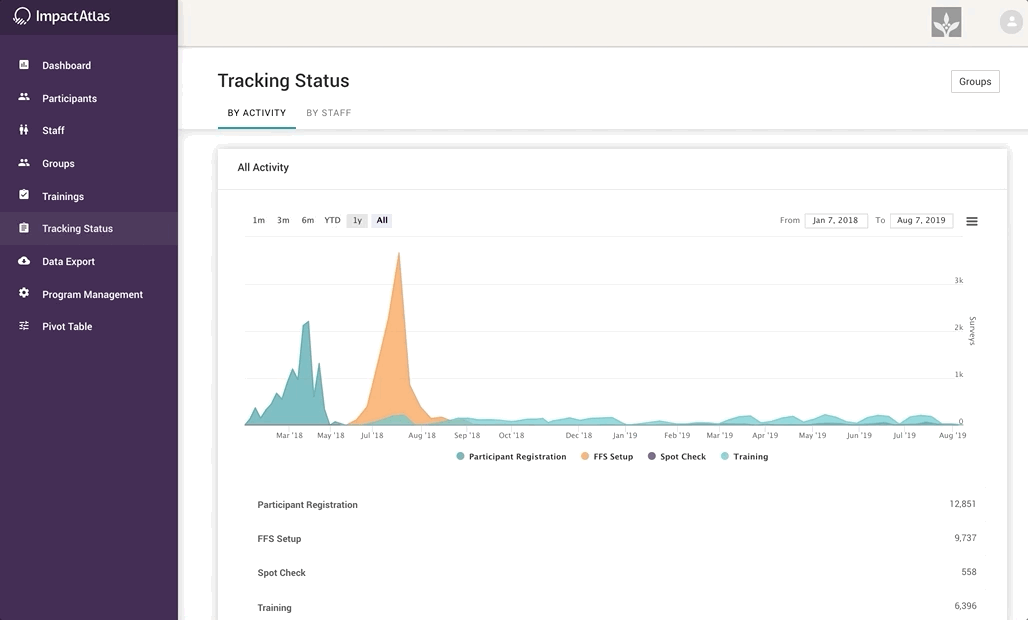
*Real HRNS data from the first year of data collection & tracking trainings
Real-time data sharing at every level of the organization.
From the field office in Kakumiro to the country office of Kampala, to the head office in Hamburg, each level of the organization sees the same data, in real-time as soon as the farmers have connectivity and offline data is synced. This unified understanding allows HRNS to quickly implement changes to improve and optimize a program’s structure and resources.
Attendance and success tracking of all farmers in the program
With individualized profiles, and filterable lists and maps, HRNS is now able to keep track of the progress of 21,985 farmers in real-time, giving the organization the tools it needs to improve the lives of families around the world.
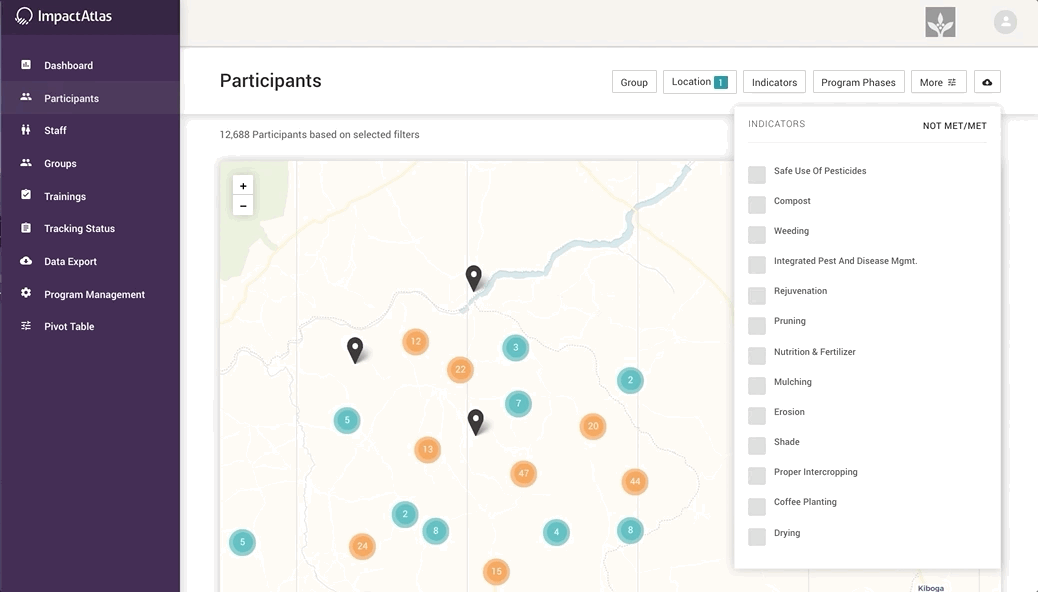
About Hanns R. Neumann Stiftung (HRNS)
HRNS works to support the most vulnerable smallholder coffee farmers and their families around the world. They implement hands-on projects with farmer communities, farmer organizations, and local coffee organizations. Worldwide, HRNS is active in numerous coffee-producing countries, with the focus on the professionalization of farmers and the development of modern farmer organizations. Other focal points of their work are climate change, Youth Development and a gender approach aimed at strengthening families.
HRNS Uganda has been implementing projects with coffee farmers and their families for 12 years and has to date reached more than 50,000 households in Uganda.
 ImpactAtlas
ImpactAtlas